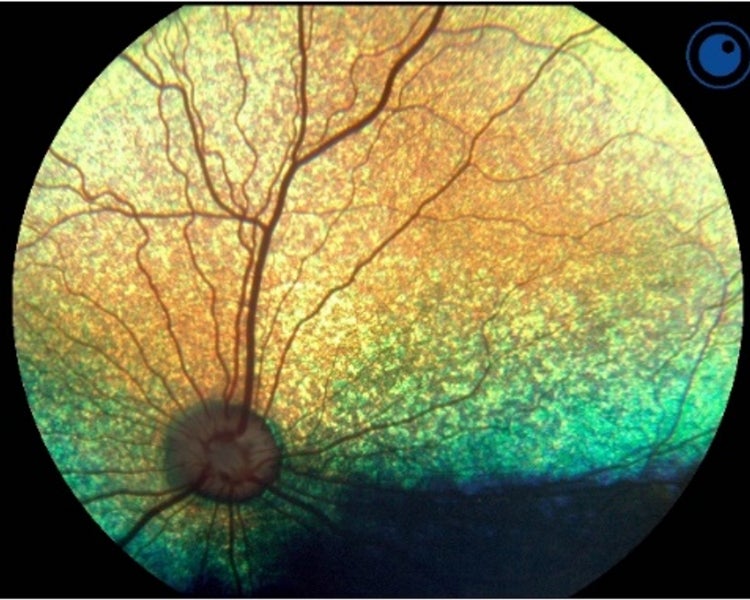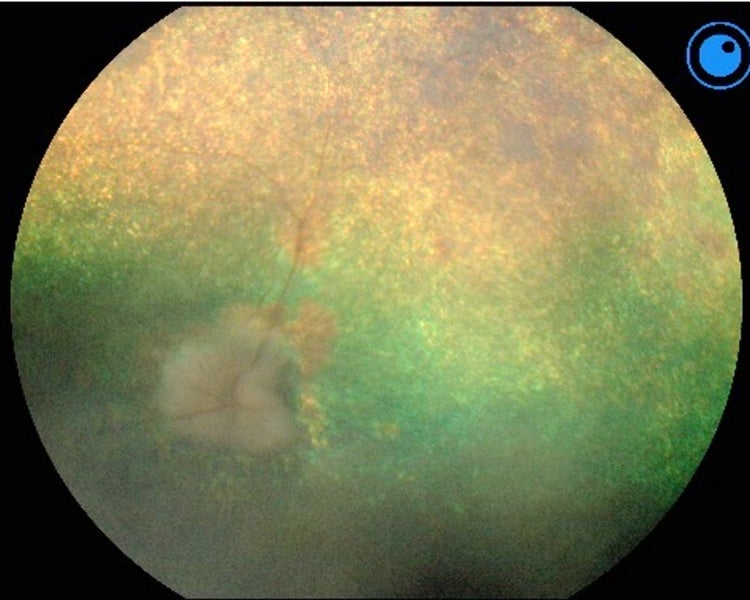Progressive Retinal Atrophy
Progressive retinal atrophy (PRA) is a group of inherited (genetic) diseases that cause dogs to gradually lose vision in both eyes. It is usually caused by a genetic mutation in the dog’s DNA.
The retina, located at the back of the eye, is responsible for sending visual information to the brain. It is made up of two types of cells called photoreceptors: rods and cones. Rods are responsible for seeing in low light and at night, while cones handle fine details and vision in daylight.
Depending on the specific genetic mutation, your dog may first lose night vision if the rods are affected or day vision if the cones are compromised. In rare instances, only one type of photoreceptor may be impacted, allowing your dog to retain some level of vision.
Cause
The specific cause of PRA is genetic, meaning that your dog received mutated genes from both parents at birth. In humans, more than 300 genes have been linked to retinal diseases, while in dogs, we currently know of just over 50 genes. Screening your dog to pinpoint the specific mutation is vital for understanding the condition.
Testing
To gain insights into your dog’s eye condition and better anticipate future developments, we will conduct the following non-invasive tests:
- Obstacle Avoidance Course: Your dog will navigate a course set with random objects (like pillows and toys) under both dim and bright lighting conditions. We’ll record the time taken and any collisions with objects in each setting.
- Electroretinogram (ERG): Similar to an EKG for the heart, this test measures the retina’s electrical activity. Small electrodes will be placed on your dog’s eyes while tiny needles are inserted just under the skin. As light flashes are directed into the eyes, we’ll record the retina’s response, identifying which cells remain functional.
- OCT Spectralis: Under light sedation, we will use a specialized camera to capture high-definition images of the retina. This procedure is akin to a PET scan but focuses specifically on the eye.
All tests are painless, non-invasive, and primarily contactless, though mild sedation may be necessary.
Contact
Appointments
Call (215) 746-8387

and ask for Valérie Dufour, DVM.


Treatment, and Prognosis
Treatment, and Prognosis
Treatment
Currently, no treatments exist for PRA. However, understanding your dog’s condition is essential for advancing research and developing potential therapies. By uncovering more about genetic mutations and their impacts on vision, we can help pave the way for future treatments.
Every piece of information contributes to our collective knowledge, guiding scientists in crafting effective strategies to address inherited retinal diseases. Your involvement is invaluable in this journey toward hope and vision.
Prognosis
Information on retinal diseases is often limited. Identifying a genetic mutation can provide clearer insights into your dog’s condition. Following retinal testing, we will be able to provide more details about the expected timeline for vision changes. We may recommend follow-up testing to monitor progression and refine the prognosis.
While there is currently no treatment for PRA, it’s important to note that the condition is painless. Many dogs adapt remarkably well to gradual vision loss and can continue to live happy, fulfilling lives with some adjustments. Gathering comprehensive information on each dog and their specific condition is a crucial step toward developing effective therapies.
We are here to support you and your dog through this journey. Together, we can strive for a better understanding and a hopeful future for dogs affected by retinal diseases.
Together, we can make a difference!
Ryan Veterinary Hospital
Emergencies:
(215) 746-8911
By Appointment:
(215) 746-8387
